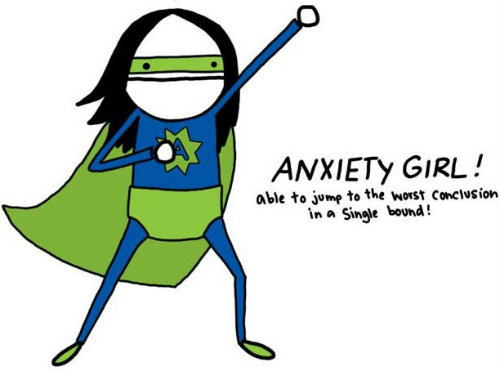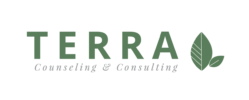I’m often impressed when I watch friends, colleagues, or clients, come up against deadlines and effortlessly push their way through all of the last minute details with clarity, ease, and accuracy. I can see the energy and excitement surging as they put the finishing touches on a paper, meet a work deadline, or compile a presentation, spurred on by the threat of the looming deadline.
My brain doesn’t work quite the same way; I’m not motivated by fast-approaching deadlines and I don’t like to come in “under the wire”. I’m a planner and enjoy the opportunity to entertain a well-crafted, thoughtful response versus coming up with something on the fly. (I’m very impressed by those who can craft immediate, thoughtful responses.) But when I’m forced to face a deadline change, and there’s no time for calculated reactions, something remarkable and curious happens.
There’s a thin place between comfort and panic, a place where we are pushed outside of our comfort zones, and face fear, with little time to allow it to escalate to the point of panic. Without that opportunity to process perceived dangers, fears of exposure or vulnerability, and without the option of intellectualizing a plan to protect ourselves from any dangers, we are left to face something deeply intuitive, energized by a healthy fear, and exposed by the inability to control that space.
That thin place is where I reside when I’m in my office. With the dynamic and evolving process of counseling, there is no way to plan or intellectualize myself out of the curve balls that come. As that anxiety and excitement surge, I’m left to wrestle my way through an intuitive road map, significantly less comfortable than my intellectual road map, but much more authentic. This is a resource that I didn’t tap into very well until I faced this unnerving experience day after day in counseling.
For those of you who struggle with anxiety, consider times when the heightened fear led to an emerging resource. What did that anxiety accomplish for you? What did you tap into when your usual resources weren’t an option? How did that emerging character trait influence your sense of self? What experiences are you avoiding for fear of staying in that thin place? I’d love to hear your comments, questions, or thoughts about your own resourceful anxiety.
The thin place between comfort and panic is a difficult place to stay. It’s not easy to navigate that emotional spectrum while under pressure, without tipping into panic. If you’d like to learn more about how to stay in that thin place, that’s a valuable part of the counseling process. As someone who manages that tension daily, I’d love to dialogue about that. What I love about my job is seeing the remarkable and curious resources that emerge from others as they bravely enter the thin places of life. I’m humbled to see brilliance and vibrancy as a client or friend manages the tension and experiences their untapped resources. I’d invite you to consider this possibility in your own life. It’s a beautiful thing.


What does anxiety accomplish? Comfort. Best starting point is panic. Ask the terrifying questions: how on earth can you pull off deadline or what happens if/when you fail. Just do it someplace safe and do it fast.
What do you tap into? Without normal resources, slow time with (post-panic) common sense questions: do you have all the pieces, what are you willing to sacrifice, what will it look like when finished.
How does it influence sense of self? I would argue that, with deadlines, there is no thin place between comfort and stress. Deadlines involve episodic stress rather than chronic stress (e.g., why zebras don’t get ulcers waiting for lion to attack).
What experiences are being avoided? Tough part of anxiety is not unleashing it on others and breaking down emotional connections. I don’t have an answer. Open to suggestions!
Kent, I appreciate the thoughtful response. If anxiety accomplishes comfort then it serves as an avoidance from facing what underlies the fear. It keeps us quarantined from our inner worlds, disconnected from the potential for an accurate self-identification.
It sounds like when your normal resources aren’t available you tap into the ability to be more present in the moment, which provides numerous opportunities for curiosity.
In response to your answer about sense of self, episodic stress still allows the opportunity for titration, where one can modulate a response to that stress involving a balanced perspective where in-the-moment resources are refined. And, I didn’t hear an answer to how that actually influences your sense of self.
It’s very true that its difficult not to react in the face of anxiety, and allow it to hinder relationships. Having a better awareness of the anxious process we go through and of what triggers it can be a valuable way to begin making intentional decisions with that emotion, rather than allowing out to leak out onto others. Thanks, again, for sharing how you evaluate those questions for yourself.
So, it seems like staying in a thin place, without slipping into panic, would mean staying in the present moment. And, if we are centered in reality during a present moment, we wouldn’t be entangled in worries, fears and delusions, right? So maybe, we could start to stay in the present moment well, by slowing our minds and body sensations down. I think slowing down could automatically invite us into more reality. And maybe, with our focus leading away from our usual patterns (as we’re slowing ourselves down), we could then focus our thoughts on looking for reality.
Through counseling, this blog post and talking with friends, it seems staying in reality, relationship-wise, means recognizing when fears, worries and delusions are arising and taking time to see what the other person in the relationship really means or intends. Also, in conversations, without hiding what we truly want to say behind planned words- that soothe our worries and fears, but make us feel inauthentic and distant-we can say whatever is true for us and work through what comes up in an authentic and connected way with someone.
I think when we chose to slow down and look for reality; we open ourselves up more to what is authentically going on for another person and for us. Maybe the motivation for slowing down and looking for reality could be the experience to connect more fully.
~Marina
Marina, great thoughts. Slowing down the emotional process is a really important way to get a hold of ourselves and understand what’s going on for us and how we’re responding to it. It’s hard for us to see life as it really is when we’re overwhelmed by our emotions. Being in that thin place means balancing the emotion and the thoughts, rather than letting one or the other take over. I appreciate your desire to think through this issue very conscientiously.
Okay, so as we’re balancing the emotions(since its important to acknowledging them and understand what’s going on for us and what that means) and the thoughts, what idea’s would you give as to how we could look for reality/be present in reality?
Marina,
This is where a support infrastructure is invaluable. We can challenge and/or validate our thoughts and emotions with a group of trusted advisors and a group of peers. Experiencing humanity with others can help to keep us focused in the present instead of drifting into idealism, emotional responding, or distorted thinking.
Oooo, yea, instead of being wrapped in our own minds tring to work things out, experiencing the grace of trusted community. Thanks, Amy!